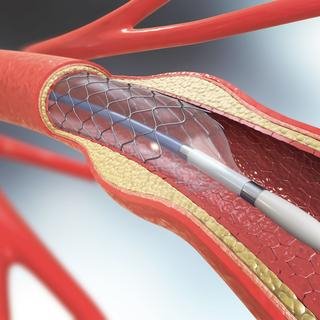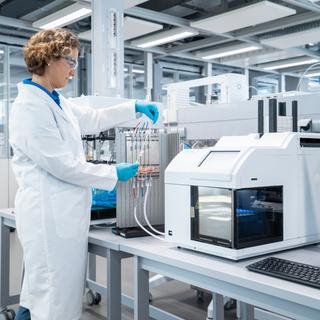It was with great pleasure and excitement to host the first Agilent 400-DS workshop at our customer center in Waldbronn, Germany on January 17, 2023. This hybrid event included attendees and presenters joining us in person, while others attended online. There was a good mix of experienced and beginner-level analysts, as well as those who will (hopefully) make up the next generation of 400-DS users.
The 400-DS is a USP-compliant Apparatus 7 for small volume dissolution testing. The instrument is designed for the testing of novel dosage forms such as medicated stents or contact lenses, pacemaker leads, and other drug-coated implants. Click here to find more information on how the instrument works.
After a warm welcome by Agilent staff, it was an honor to have Professor Sandra Klein from the Pharmaceutical Technology Department at the University of Greifswald (Germany) share her knowledge and longstanding experience in the field of dissolution testing, especially for challenging dosage forms. Prof. Klein gave an overview of applications using the 400-DS including vaginal rings, suspensions, and mini tablets. She also discussed some limitations of the equipment when it comes to disintegrating dosage forms that cannot be contained in the sample holder.
Next, we heard from Professor Anne Seidlitz who leads her research group at the Pharmaceutical Technology Department of the University of Düsseldorf (Germany). In her talk, Prof. Seidlitz showed some great work her team had carried out with the 400-DS on the dissolution testing of drug-eluting stents - the product that spawned this instrument - as well as nasal sponges, catheter balloons, and ocular implants.

The afternoon continued with a presentation by Iria Torres Teran. Iria is undertaking her PhD research at Sanofi Frankfurt in the team of Marta Venczel and the co-supervision of Prof. Klein. Under the title ‘Applications on 400-DS Small Volume Dissolution testing’, Iria presented a summary of her thesis, where she utilized the 400-DS for the dissolution testing of subcutaneous implants.
Presentations from our academic partners was concluded by Jacob Rune Jörgensen from the University of Copenhagen. Jacob also presented us parts of his PhD research, performed under the supervision of Anette Müllertz and Thomas Rades. The main topic of the work presented discussed the assessment of a self-unfolding delivery concept for oral administration of macromolecules. Studying the in vitro release of insulin from a foil, the 400-DS was able to gain meaningful release data for the formulation. Jacob now works at Bioneer.
The presentations were interspersed by a Tips and Tricks session on the 400-DS given by the Agilent Dissolution team, where we demonstrated best practices to keep the instrument in good working order with focus on good cleaning procedures, which should be developed for each product. As a possible alternative to the 400-DS instrument – specifically for nanoparticle formulations requiring filtration – the Agilent NanoDis was also introduced to the audience. This session provided a system overview as well as details regarding relevant applications. Click here to see how the NanoDis works!

Agilent would like to thank all presenters and participants for the great exchange of information and experiences shared during the workshop. Stay tuned for similar events upcoming in 2023 and feel free to contact us at the Dissolution Hotline for more information. Thanks for reading!
DE68594202
